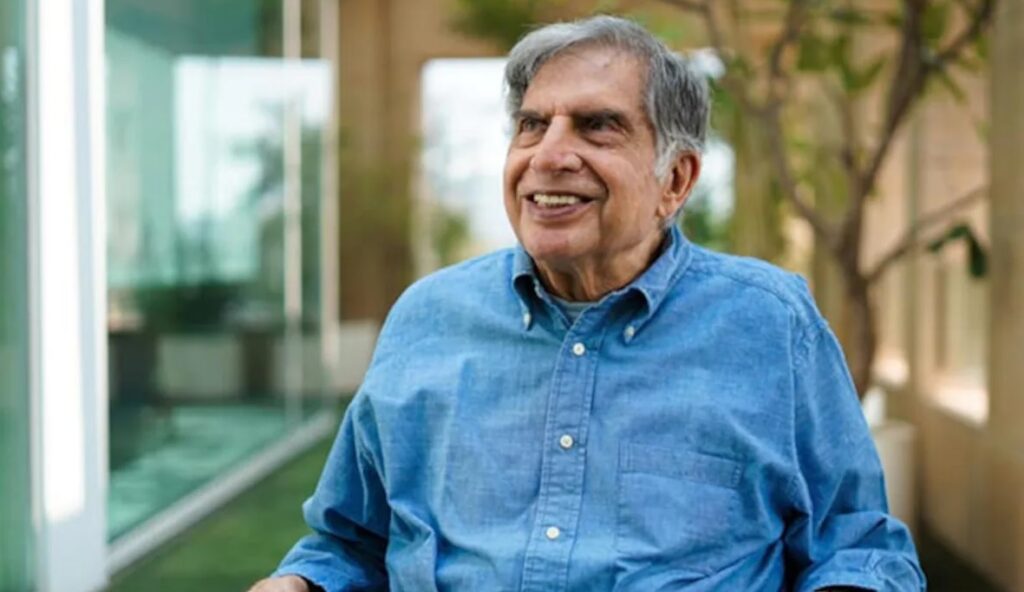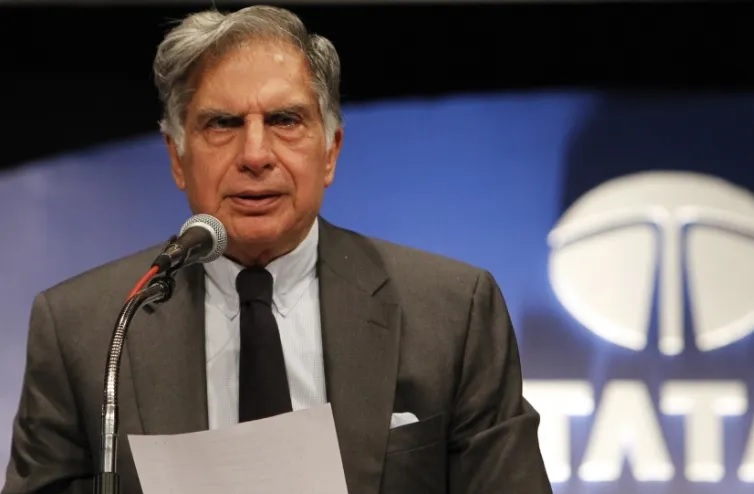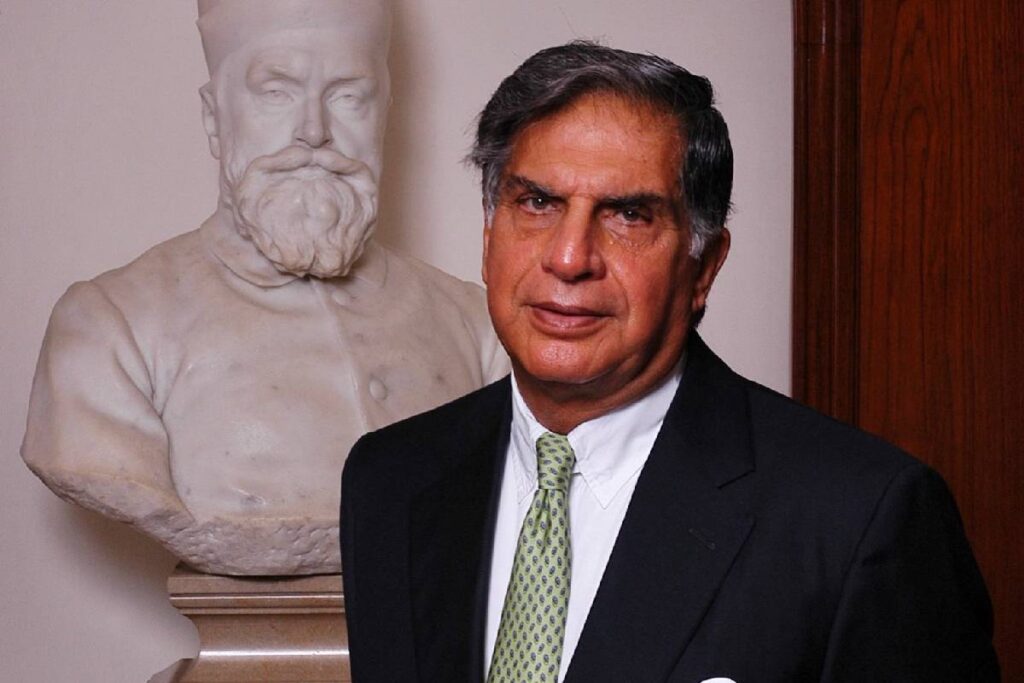Ratan Tata, the renowned industrialist and chairman emeritus of Tata Sons, passed away at the age of 86. His death marks the end of an era for India’s corporate world and leaves behind a rich legacy of business success, philanthropy, and integrity. Tata was not only a leader who transformed the Tata Group into a global powerhouse, but he also remained humble and compassionate throughout his life. In this blog, we will take a look at his life, leadership, and lasting impact on society.

Early Life and Education
Ratan Tata was born on December 28, 1937, into the Tata family, one of India’s most respected business dynasties. After his parents separated when he was just 10 years old, he was raised by his grandmother, Navajbai Tata. Despite this personal challenge, Tata thrived academically and showed early signs of leadership potential.
Tata studied architecture at Cornell University and later completed a management program at Harvard Business School. His education abroad played a crucial role in shaping his global outlook, which would become evident in his leadership of the Tata Group.
Taking Over Tata Sons: A New Era of Leadership
Ratan Tata took over the reins of Tata Sons in 1991 from his predecessor J.R.D. Tata. At the time, the group was a major player in India but had yet to make significant international strides. Ratan Tata had a vision for the Tata Group to go global, and over the next two decades, he transformed it into one of the most successful conglomerates in the world.
Under his leadership, Tata made several strategic acquisitions, including the purchase of Jaguar Land Rover and Tetley Tea. These moves not only expanded the company’s global presence but also enhanced India’s reputation on the global business stage. The acquisition of Jaguar Land Rover in 2008 was especially bold, as the brands were struggling at the time. However, under Tata’s leadership, they were revitalized and became profitable.

Launch of Tata Nano: A Dream for the Middle Class
One of Ratan Tata’s most famous initiatives was the creation of the Tata Nano in 2009. Tata had a vision of making car ownership affordable for the common Indian family. Priced at just ₹1 lakh, the Tata Nano was the world’s cheapest car. Though it didn’t achieve long-term commercial success, it symbolized Tata’s commitment to innovation and providing affordable solutions to the public. The project showed his ability to think outside the box and deliver products that catered to the masses.
Philanthropy and Social Responsibility
Ratan Tata’s leadership was not only about profits and business growth. He was deeply committed to philanthropy and believed that businesses should contribute to the greater good of society. Throughout his career, he focused on healthcare, education, and rural development, ensuring that the Tata Group gave back to the community.
His charitable trusts, including the Sir Ratan Tata Trust and the Tata Education and Development Trust, have funded numerous projects aimed at improving healthcare infrastructure and educational opportunities in India. His contribution to cancer care, through institutions like Tata Memorial Hospital, has provided affordable and quality healthcare to countless patients.
Additionally, Tata had a deep love for animals, especially dogs. He made sure that the Tata Group’s headquarters, Bombay House, provided a shelter for stray dogs. This small but meaningful act reflected his empathy and care for all living beings.
Ratan Tata’s Global Business Impact
Ratan Tata’s contribution to global business cannot be overstated. Under his leadership, Tata Consultancy Services (TCS) went public in 2004, becoming one of the largest IT service companies in the world. TCS played a significant role in positioning India as a global IT hub and brought international recognition to the Indian tech industry.
Ratan Tata was also instrumental in the Tata Group’s acquisition of Corus, a British steelmaker, in 2007. This acquisition made Tata Steel one of the largest steel producers globally. These business moves demonstrated Tata’s ability to think globally and expand the company’s footprint, while also staying true to its core values of integrity and ethical business practices.

Legacy of Mentorship
Ratan Tata was more than just a business leader; he was a mentor to many aspiring entrepreneurs and leaders. Even after stepping down as the chairman of Tata Sons in 2012, Tata continued to invest in and guide young startups, especially in the fields of e-commerce, electric vehicles, and technology. He believed in the potential of India’s youth and actively supported innovation through mentorship and investment.
One of the key figures Tata mentored was Natarajan Chandrasekaran, who succeeded him as the chairman of Tata Sons in 2017. Chandrasekaran has often credited Tata for his guidance and described him as a mentor, friend, and guide. Tata’s influence on the new generation of leaders ensured that the values of integrity, social responsibility, and innovation remained deeply embedded in the Tata Group’s DNA.
Challenges and Controversies
Ratan Tata’s career was not without challenges. One of the most significant controversies was his public fallout with Cyrus Mistry, who succeeded him as the chairman of Tata Sons in 2012. The legal and boardroom battle that followed Mistry’s removal in 2016 was one of the most talked-about corporate disputes in India. Despite this, Tata remained focused on the growth and stability of the group.
Another challenge Tata faced was with the Tata Nano project. While the car generated a lot of initial excitement, it failed to achieve long-term commercial success. However, Tata always stood by the project, emphasizing that it was an important step toward innovation and affordable solutions.
Honors and Recognition
Ratan Tata’s contributions were recognized globally throughout his life. He was awarded the Padma Bhushan in 2000 and the Padma Vibhushan in 2008, two of India’s highest civilian honors. These awards were a testament to his service not only to Indian industry but also to the country as a whole.
In 2009, he was honored with the Honorary Knight Grand Cross of the Order of the British Empire (GBE), further solidifying his international reputation as a visionary leader. His work in strengthening ties between India and the UK, especially through the acquisition of British companies, played a significant role in earning this recognition.
Death of Ratan Tata: The End of an Era
On October 9, 2024, Ratan Tata passed away at the age of 86. His death was met with an outpouring of tributes from across the globe. Indian Prime Minister Narendra Modi described him as a “visionary business leader and a compassionate soul” who dedicated his life to bettering society. Other leaders, business figures, and citizens alike took to social media to express their grief and admiration for a man who not only led one of India’s biggest conglomerates but also touched the lives of millions.
N Chandrasekaran, the current chairman of Tata Sons, described Tata as a mentor, guide, and friend who inspired by example and remained committed to excellence and integrity throughout his life. Ratan Tata’s death marks the end of an era for Indian business, but his legacy will continue to inspire generations.
Conclusion
Ratan Tata’s life was a testament to visionary leadership, compassion, and humility. From transforming the Tata Group into a global conglomerate to his charitable work that uplifted millions, his legacy will continue to shape India and the world. His leadership went beyond business success—it was about using that success to create a positive impact on society.
In a world where profit often takes precedence over people, Ratan Tata remained a beacon of ethical business practices and social responsibility. His death leaves a void, but his values, vision, and compassion will continue to guide future leaders.

